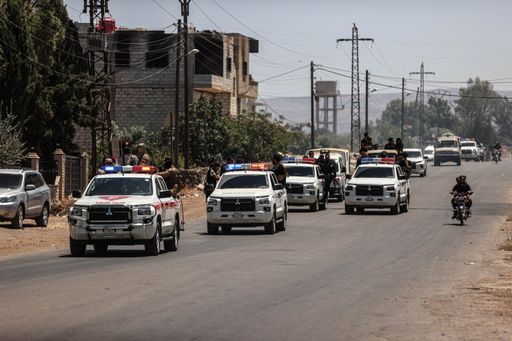Syrian Foreign Minister Assad al Shaibani has met in Paris with an Israeli delegation to discuss de-escalation measures and stability in southern Syria, Syria’s state news agency SANA reported.
Talks centred on monitoring the ceasefire in Sweida province, reactivating the 1974 disengagement agreement between Israel and Syria, reducing tensions, and ensuring non-interference in Syria’s internal affairs.
The discussions were held under US mediation as part of broader diplomatic efforts to bolster stability across the region and preserve Syria’s territorial integrity.
On August 12, al Shaibani held a similar meeting in Amman with Jordanian Foreign Minister Ayman Safadi and US Special Envoy Tom Barrack, where the three agreed to form a joint Syrian-Jordanian-US working group to support the Sweida ceasefire and pursue a comprehensive solution.

A violation of sovereignty
In a parallel development in Paris, Mowafaq Tarif, spiritual leader of Israel’s Druze community, met Barrack and raised allegations of violations against Druze in Sweida in July, according to Israeli broadcaster i24.
Damascus has consistently rejected such claims, with Syrian officials saying they are used by Israel as justification for interference.
Tarif has previously called for international intervention, alleging "terrorist" threats against Druze in the province.
According to i24, the Paris meeting also discussed proposals for a "humanitarian corridor" to Sweida under US supervision, an idea often promoted in Tel Aviv but dismissed by Damascus as a violation of sovereignty.
Sweida has been under a ceasefire since July 19 following a week of deadly clashes between Druze groups, Bedouin tribes, and Israeli military attacks. Israel has repeatedly cited the need to "protect the Druze" in its justifications for military action in Syria, while Damascus has urged enforcement of the 1974 disengagement deal to prevent further escalation.



















